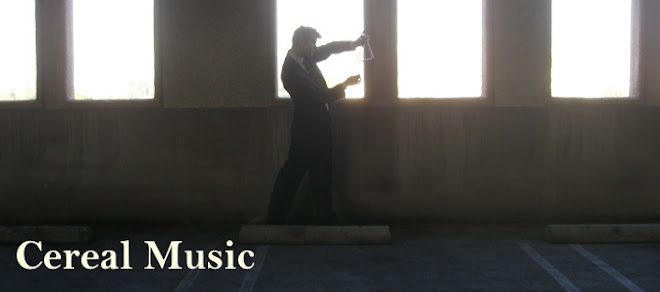 |
| As in Ancient Greece, the composer today is celebrated for the intrinsic beauty of their competitive success. |
With competitions holding such a valuable and important place in the career paths of young composers, many justifiably want to win as many as possible, so as to secure admission to more prestigious graduate schools of composition and thus win more coveted teaching positions at more prestigious universities. So many want to know: how can I achieve more success with the composition competition? Well being such an objective process, there are a few simple things you can do in your compositions and life to help improve your chances with the competition panel.
The first thing (step 1) that will really help you win competitions is to have won a lot of competitions already. This is very important. Many committees don't want to go out on a limb and decide that something is good for themselves- they feel much more comfortable selecting winners that other committees have already put their stamp of approval on. You will find that a small number of contestants tend to win the majority of competitions. This is not only because they are the best composers, but because they have a proven track record of success and so must be the best.
If step 1 proves problematic for you, I suggest applying to competitions where your teacher sits on the judging panel (step 2). Often the most prestigious competitions are reviewed by panels of older, respected composers who themselves have won many competitions and most likely teach at prestigious universities. This makes sense because who is better at judging hot new trends in music than old people? Study with them. Many of them will want to secure their own legacy as important composers and teachers by demonstrating that their students are very prolific competition winners, who themselves will one day make excellent competition judges. Take advantage of this.
What about the music itself you ask? Is there anything you can do there to help secure your competition legacy? Well there are a few simple things you can change in your music in order to be a more viable competitor (step 3). While not nearly as important as steps 1 and 2, these relatively simple steps won't hurt you either. After all, you didn't become a composer in order to get second place. If you aren't first, you're last. There is no try.
1. Use Crotales. I simply don't understand composers that don't use Crotales in every single composition. They are the most versatile, wonderful instrument, which can be struck with a mallet, bowed, or even hit creatively with a knitting needle. Nothing says "competition winner" like constant, absurd saturation of your music with Crotales. Similarly,
 |
| Crotales, the most important instrument in modern composition. |
3. Use lots of tuplets of things- on page 1. Some composers might have some great tuplets of things in their compositions, but they bury them way down on page 20. Most panels don't have the time to wade all the way through a long and dense composition to find your best tuplets. You want those to be displayed front and center, right away. You want the first page of your composition to say, "I can make a tuplet of anything." Also, if you are European, the downbeat of the tuplet should always be a rest.
 |
| An example of some masterful use of tuplets. |
4. Title your piece artistically- for success! Nothing is more difficult for the composer than coming up with a title that keeps up with the latest titling trends. While we seem to be coming out of a period where successful composition titles included a word with an internal part of the word enclosed by parentheses- such as Inter(rupt)ions- which followed a long period of titles suggesting the deep mathematical or scientific understanding of the composer- Geopolymetrcisms- today's trends might suggest the need for something a bit more poetic. A good standby is to title your pieces beginning with a "... and." This helps to convey how badly you would like to win competitions, as well as how deep and mysterious your thoughts are, as though they are constantly on-going and the listener just happens to pass by mid-sentence. (Example: ... and how deep and mysterious ). It really works well with almost any sentence. (... and with almost any sentence ... )
5. Don't write slow music. What is this, the middle ages? Nobody has time for this. When the panel pops in your demo CD, you have about 10 seconds to keep them listening. This is achieved by showing how many notes and extended techniques you can fit in in 10 seconds, not by boring them to death with some long slow build to a climax.
By following these few simple steps, you will be well on your way to greater competition success. And should you find yourself discouraged by the competition circuit, you can always try your hand at Popular Music, where the best music always makes the most money and the most culturally important achievements are recognized annually at the Grammys.

